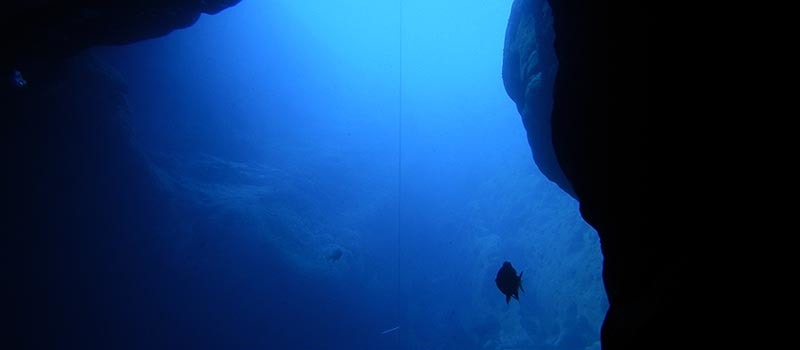How Deep Can a Human Dive? Top 3 World-Record Dives
Last Updated on

If you’re wondering how deep can a human dive, remember that divers have died trying to break the deep diving record.
The deepest dive ever (on record) is 1,082 feet (332 meters) set by Ahmed Gabr in 2014.
That depth is the equivalent of approximately 10 NBA basketball courts aligned vertically.
In terms of pressure, that’s about 485 pounds per square inch.
Most people’s lungs would be crushed at that depth.
How Deep Can a Human Dive Helps Answer an Important Question
So why do people attempt such a risky endeavor?
- Push boundaries of saturation diving technology
- Increase physical adaptation to water pressure
- See and record unique animal and plant life
- Public recognition
But there’s one reason that stands above all the rest:
Learning more about humanity’s capabilities.
I believe curiosity is the summation behind all of these deep diving exploits.
It gives us a strong answer when we ask, how deep can a human dive?
Man has gone to extreme measures to deepen their knowledge of our oceans. The more we explore, the more questions we have about the watery world around us.
To tell this narrative of exploration, I’ve listed the top three deep dives on record by category.
Top 3 Record-Breaking Deep Dives: Vessel, Scuba & Free
PADI defines “deep dives” as at least 18 meters down.
These dives go way further than that.
I’ve focused on the categories of vessel, scuba and free dives.
Each of these categories has their own unique challenges in the ocean:
- Vessel (submarine) divers work with navigation and communication issues, since they’re safely confined inside of a pressurized cabin.
- Scuba divers face intense physical pressure, extreme fatigue and close monitoring of their air intake.
- Free divers deal with everything that a scuba diver does, with one notable exception: They have no air supply.
1. Vessel Dive: James Cameron
Most people know him as a movie director of Titanic.
But James Cameron has some other credits to himself.
In this instance, he is the first person to reach the bottom of the 6.8 mile Mariana Trench alone.
He’s had a fascination with ocean depths for many years, made especially evident in The Abyss.
Cameron successfully reached and analyzed one of the deepest parts of the ocean with his special submarine, “The Challenger.” He stayed at the bottom collecting data for about three hours before coming back to the surface.
2. Scuba Dive: Ahmed Gabr
First of all, we want to give respect where it’s due.
Dr. Guy Garman, one of the most knowledgeable technical divers of our time, passed away in an attempt at the latest deep dive in 2015.
His attempt to redefine how deep can a human dive ended in tragedy. Though many divers condemned his attempt, it’s more important to learn from this event so that it’s never replicated.
These are actually called “ultra-deep” dives, in which divers attempt to break the record.
The latest broke the last deepest dive record by almost 15 meters: 332m. Ahmed, an Egyptian, dived into South Sinai with a support team of 24 trainers, divers and medical and communication support.
It took him four years of intensive mental and physical training to reach his goal. In fact, he wanted to complete it in 2012, but due to the politically tense situation in his mother country, he delayed his champion dive.
He was both a scientist and diver.
He studied the effects of nitrogen narcosis and many other decompression-related issues that can surface when diving to extreme depths.
When it came down to it, he realized that the only way to fully understand it was to use his own body as a guinea pig of sorts.
This he did – successfully.
3. Free Dive: Herbert Nitsch
Free diving is crazy impressive if you ask me.
Without any breathing apparatus, you’re swimming into the depths with only one breath to keep you oxygenated.
On June 6, 2012, Herbert Nitsch, a free diver holding over 30 world records, set the bar for the deepest free dive ever by descending 253 meters in Greece.
At the last 10 meters down, he experienced an overwhelming amount of decompression sickness and was aided by medical divers nearby. Still, this record is unbelievable, especially considering the amount of stress and pressure on his body.
Here’s a video of his previous deep diving record in 2007:
Humans will Continue Diving Deeper
Risk of death hasn’t stopped divers from breaking deep diving world records.
There’s no doubt we’ll continue to break them.
The dangers associated with deep diving are part of the lure for some – and the thirst for knowledge for others.
